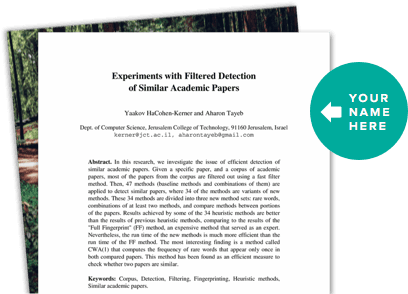About This Project
Whilst digital co-pilots are urgently needed than ever before to foster the individual capabilities of our cars, sharing data among them can make our driving experiences safer and less stressful, especially on high-speed roads.
This project strives to develop an affordable versatile test-bed for extensive experimentation to assess the reliability of Li-Fi (light fidelity; a promising alternative to Wi-Fi ) as a medium to connect independent digital co-pilots.
Ask the Scientists
Join The DiscussionWhat is the context of this research?
To date, the majority of driver’s digital assistants are still independent and rely on conventional radio-frequency Wi-Fi technologies, which are neither cheap nor hassle-free. Therefore, engineers and researchers have shifted their focus to Li-Fi technologies–a rapidly emerging alternative to Wi-Fi. The development of Li-Fi-based solutions usually begins with an open source hardware platform driven by a commercial single board computer (SBC). However, supplies of such patented-technology SBCs become suddenly short, leading to higher prices, purchase limits and, ultimately, slacken the development of mature Li-Fi-based vehicular solutions. The availability of a completely DIY Li-Fi platform using low-cost off-the-shelf opto-electronics would add momentum to this field.
What is the significance of this project?
This project responds to a pressing need for feasible low-cost driving assistance solutions that can continuously monitor vehicle’s status, and cooperatively communicate with the driver, other vehicles and the infrastructure to achieve a safe and smooth driving experience. Emerging solutions are gradually adopting Li-Fi as a promising vehicular technology and, at this point in time, the availability of a DIY Li-Fi test-bed that everyone has equal chance to access will remove technological and financial barriers for many talented designers, which will help them release innovative contributions and ultimately, advance the research and development in this field towards safer driving assistance solutions.
What are the goals of the project?
The major goal of this project is to develop a DIY Li-Fi test-bed with significantly enhanced features on the transport layer compared to the state-of-the-art [1]. The Li-Fi platform in [1] will be radically re-engineered to increase the data rate beyond 400 kbit/s, provide advanced functionalities with less sophisticated signal processing, include arrays of multi-wavelength LEDs at the front-end (instead of a single monochromatic LED), reduce the prototyping complexity (only one board instead of two), eliminate the reliance on commercial single board computers, and facilitate the control of the transceiver hardware via a graphical user interface in a high level programming environment (instead of the more difficult black screen coding).
Budget
The major part of the project expenses (~58%) will be used to partially compensate for the time and intensive efforts to develop this project over its duration (~7 months). The second part of the project budget will be used to cover the Experiment.com fees (~12% of the total budget) and the hardware costs(~30%). The hardware costs will cover electronic and opto-electronic components, prototyping of printed circuits boards (PCBs), laboratory tools, measurement instruments…etc. To optimise the budget expenditure, other budget items, such as domestic travelling costs, are not included. Additionally, subject to the agreement of the project supporters, the project outcomes will be made publicly available online via open-access archives such as arXiv.org and IEEE TechRxiv. This is to eliminate the article processing charges (APC) associated with publishing in formal peer-reviewed open access journals, unless an APC waiver is obtained.
Endorsed by
 Project Timeline
Project Timeline
Initially, the new Li-Fi platform will be designed and simulated on a schematic level. Then, a prototype will be iteratively developed using discrete components and experimentally tested, with a focus on the six goals outlined in the Project Goals section; a crucial phase that may reveal several technical difficulties as well as room for improvement. The final design will be forwarded to manufacturers for PCB prototyping and testing.
May 02, 2024
Project Launched
Jul 01, 2024
Project Kick-off
Aug 01, 2024
Laboratory Testing
Dec 01, 2024
Final Hardware Prototyping
Jan 01, 2025
Final Prototype Testing
Meet the Team
Affiliates
Team Bio
Initially, Dr Shehata will be managing Phase 1 of this project. Upon the successful completion of Phase 1, valuable collaborators may be invited to participate in Phase 2, depending on the project outcomes and requirements. More details will be shared with the project supporters.
Mohamed Shehata
Dr Shehata is a STEM Early Career Researcher specialised in optical and wireless communications technologies. He received his Ph.D. degree in 2023 from the School of Electrical and Electronic Engineering at The University of Adelaide, South Australia, Australia, with a focus on next generation (6G) Communications Technologies. His current research interests focus on optical and wireless forms of these technologies for a variety of applications including vehicular communications. He authored and co-authored 40+ scholarly publications in Q1 and Q2 journals as well as international flagship conferences.
From 2022 to 2023, Dr Shehata joined the Research Staff with the School of Engineering (Electronic and Telecommunications) at RMIT University, Victoria, Australia, before joining the Teaching Staff with the same school in 2024.
Dr Shehata has been a Senior Member of the IEEE since 2018, and currently, he serves as an Active Reviewer for a number of Q1 journals and top international conferences, including the Journal of Lightwave Technology (Optica), IEEE Communications Letters, the IEEE Systems Journals, and Nature Communications. In 2018, he has been recognised as an outstanding reviewer by the Journal of Optical Fiber Technology.
During his Ph.D candidature, Dr Shehata received a number of prestigious scholarships and awards, including an Adelaide International Scholarship in 2018 from the Australian Government through the University of Adelaide, SmartSAT Scholarship in 2020 from the SmartSAT Cooperative Research Centre (CRC) in Australia, and an Adelaide Graduate Award in 2022 from the University of Adelaide. In 2021, his research work was selected as a keynote talk in the flagship IRMMW-THz conference.
Lab Notes
Nothing posted yet.
Additional Information
Project Backers
- 0Backers
- 0%Funded
- $0Total Donations
- $0Average Donation


